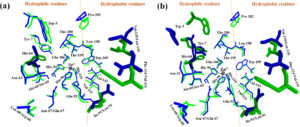INSPIRATION
Bioenergy constitutes a type of renewable energy derived from biomass sources. Liquid biofuels with quality comparable to gasoline are directly blended for use in vehicles. To achieve this quality, companies improve biofuel processes and upgradation techniques. The majority of biofuel conversion processes like hydrothermal liquefaction (HTL), pyrolysis, plasma technology, pulverization, and gasification use thermal conversion for obtaining biofuels. Furthermore,upgradation techniques like cryogenic, hydrate, in-situ, and membrane separation are used for removing sulfur and nitrogen content. Similarly, the fermentation process produces bioethanol which is easy to blend directly with gasoline. Fermentation also has the ability to convert waste, food grains,and plants into bio-ethanol, thereby providing feedstock variability. On the other hand, energy-dense feedstocks result in optimum fuel quality. For this reason, startups and big companies consider algal and microalgal feedstocks for use in the aforementioned conversion processes.
Phycobloom is a British startup that uses synthetic biology to produce bio-oil from algae. The startup’s genetically engineered algae release this oil into the surroundings. Since the same batch of algae is reused, it makes the process fast and inexpensive. Considering that algae require only air, water, and sunlight to grow, this technology also closes the loop between greenhouse gas emissions and fuel production. The startup’s solution, hence, lowers the dependency of the transportation sector on fossil fuels.
French startup BeFC generates electricity using a paper-based biofuel cell system. The system features carbon electrodes, enzymes, and microfluidics. The enzymes convert glucose and oxygen into electricity using a miniature paper material. The technology is suitable for low-power applications, like sensor data collection and transmission. Moreover,the absence of plastic and metal makes it a sustainable and
non-toxic form of energy.




